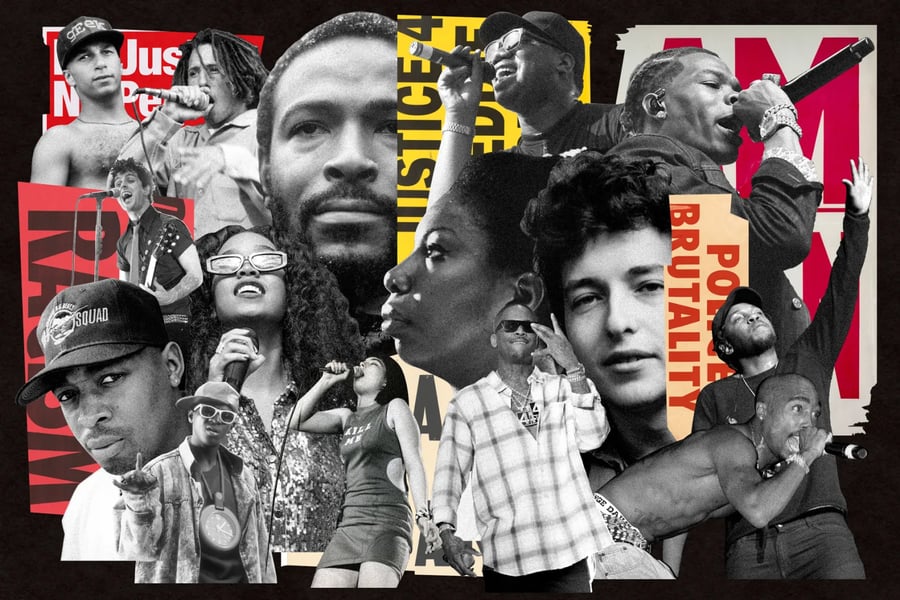The 100 Best Protest Songs of All Time
From Pete Seeger and Billie Holiday to Beyoncé and Rage Against the Machine, musicians across genres have spoken truth to power through their songs

PHOTO ILLUSTRATION BY MATTHEW COOLEY. IMAGES IN ILLUSTRATION BY GIE KNAEPS/GETTY IMAGES; TIM MOSENFELDER/GETTY IMAGES; MICHAEL OCHS ARCHIVES/GETTY IMAGES, 3; AL PEREIRA/GETTY IMAGES/MICHAEL OCHS ARCHIVES, 2; PARAS GRIFFIN/GETTY IMAGES; KEVIN MAZUR/WIREIMAGE; ERIKA; GOLDRING/GETTY IMAGES; GILLES PETARD/REDFERNS; LINDSAY BRICE/MICHAEL OCHS ARCHIVES/GETTY IMAGES; SCOTT DUDELSON/FILMMAGIC/GETTY IMAGES; RAYMOND BOYD/GETTY IMAGES; EARL GIBSON/BET/GETTY IMAGES; HERITAGE ART/HERITAGE IMAGES/GETTY IMAGES, 3.
When Chuck D of Public Enemy famously called hip-hop “the Black CNN,” he was touching on a universal truth that goes beyond genre: Music and protest have always been inextricably linked. For some marginalized groups, the simple act of creating music at all can be a form of speaking out against an unjust world. Our list of the 100 Best Protest Songs spans nearly a century and includes everything from pre-World War II jazz and Sixties folk to Eighties house music, 2000s R&B, and 2020s Cuban hip-hop.
Some of these songs decry oppression and demand justice, others are prayers for positive change; some grab you by the shoulders and shout in your face, others are personal, private attempts to subtly embody the contradictory nature of political struggle and change from the inside. Many of our selections are specific products of leftist political traditions (like Pete Seeger’s version of “We Shall Overcome”), but just as many are hits that slipped urgent messages into the pop marketplace (like Nena’s anti-nuclear war New Wave bop “99 Luftballons”).
This is probably the only Rolling Stone list to ever feature Phil Ochs, the Dead Kennedys, and Beyoncé side by side, but each of those artists is a vital participant in the long story of musicians using their voices to demand a better world.




















































































